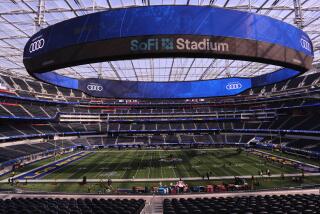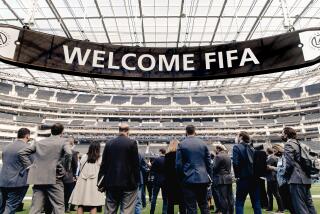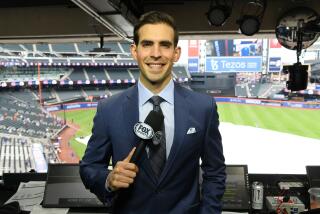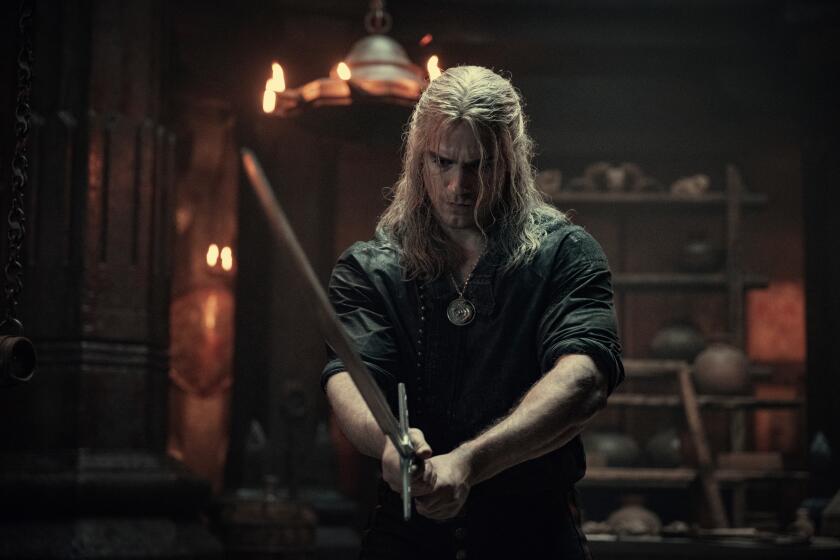ESPN is thinking big with its World Cup soccer coverage
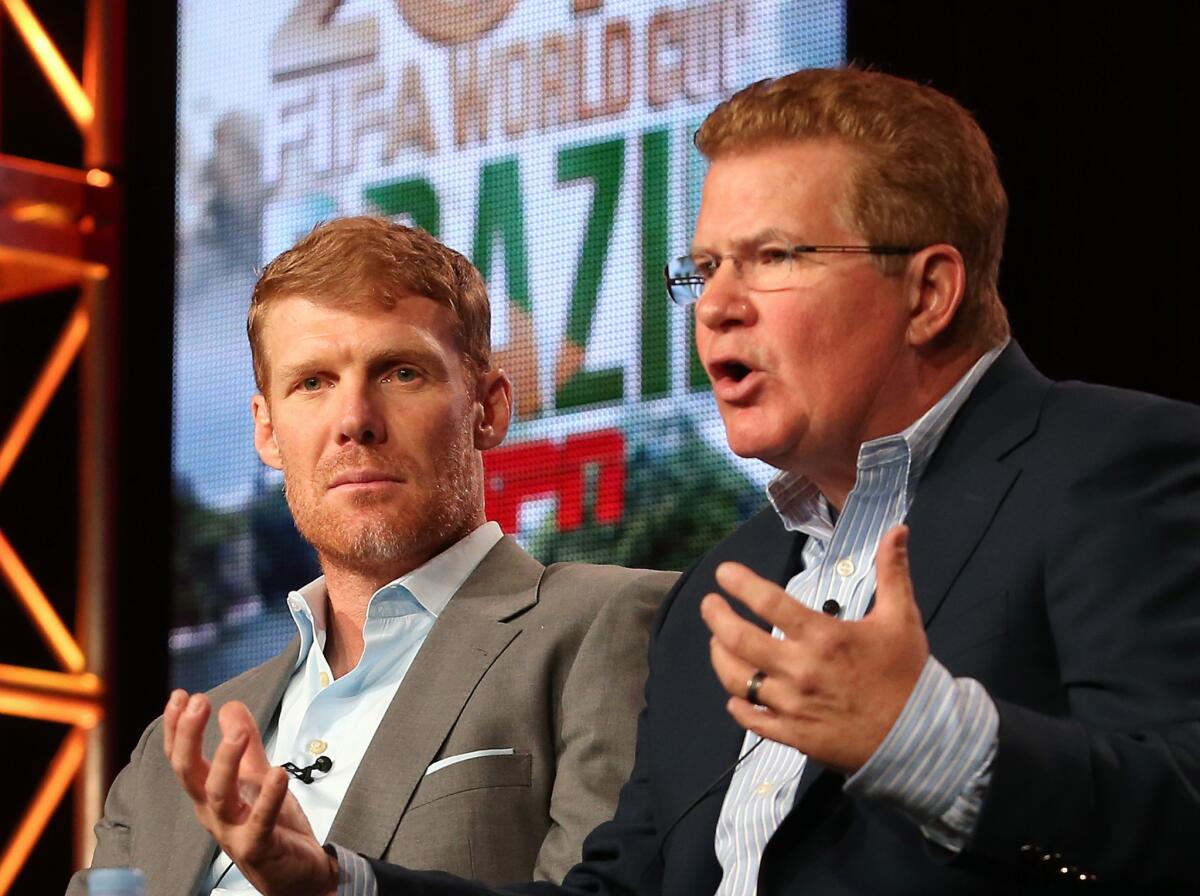
The first game of the Brazil World Cup won’t take place until June 12, when the host country plays Croatia in what will doubtless be a spirited affair. But a different kind of international-flavored drama will kick off a few days earlier, on June 9.
That’s when ESPN will hold a private dinner for its broadcasters on the rooftop of a Rio Marriott. Nationals from around the world — many of them former soccer stars — will convene to prepare for their on-air commentating jobs in the weeks ahead, excitedly and good-naturedly hashing out the teams’ prospects. As the empty wine bottles pile up, a Brazilian national hero might tell his Argentine counterpart why the latter’s club is overrated; an opinionated German could caution a former Dutch superstar that Holland is as doomed now as it was during their playing days.
”It will be like a United Nations atmosphere, with every avenue covered,” said Taylor Twellman, the former MLS star who will be holding up the American end of the argument. “I mean, I know I’m going to be arguing with Ballack,” he added jokingly, referring to Michael Ballack, the former German captain who has earned a reputation for staking out unconventional ground. “If Michael doesn’t like a player or a team you can’t convince him. He’ll just keep saying what he thinks.”
All large-scale sports events are interesting meeting places, but rarely do so many allegiances — and opinions — live under one roof as they will during ESPN’s coverage of the soccer extravaganza.
The nearly five-week event, whose final could draw as many as 700 million viewers around the world, will be super-sized by ESPN this year compared to its South African edition in 2010. (This is the last World Cup the network will broadcast for some time; Fox Sports holds the rights beginning in 2018.)
It will also be miles ahead of 2002, when network executives like to joke that the Scripps spelling bee was assigned more resources. Nearly 300 hours of coverage are planned across the ABC and ESPN networks, in addition to many more hours on digital platforms and segments on “SportsCenter.”
”This is the biggest World Cup at every level — in the challenges, the opportunities, the story lines and the broadcasters,” said Jed Drake, an ESPN senior vice president and executive producer in charge of wrangling them all.
All of that means a need for more booth and studio personalities and from a wider array of places. Among the new commentators are Dutch great Ruud van Nistelrooy, who starred for the Oranje as recently as 2011, and Gilberto Silva, who led Brazil to a World Cup championship in 2002 and still plays on a club league club there. Twellman, who will be in the booth for U.S. games, will be calling his first World Cup too, as a color commentator.
Overall, the commentating crew represents 14 World Cup tournaments played and 12 countries. (The studio coverage will be anchored by Alexi Lalas while the play-by-play in the booth will be called for the biggest games by Ian Darke, the red-headed American and excitable Brit providing a recognizable face and voice for even casual fans.)
Shuffling the many commentators all over a country nearly the size of the U.S. — the games will be played at 12 venues from Rio to the Amazon — will be tricky enough. Getting them to find common ground will be even harder.
“It’s amazing how in the footballing world you can bring people together and have the game look so different depending on who you ask,” said Fernando Palomo, the El Salvadoran national who will call Mexico games for ESPN. “The same match, a German will say it was great because it was physical, a Brazilian will think it was poor because it was played without flair and a Spaniard will say there wasn’t enough passing.”
Drake is hoping to turn the noisy disagreement to his advantage. As part of an experiment, the producer has created an additional 60-minute show that will air on the back end of ESPN’s usual 30-minute daily program “World Cup Tonight.”
After the more conventional studio section of the show ends, personalities from the show’s set (they include ESPN soccer veterans such as Bob Ley and Darke) will migrate to an informal space nearby and continue a more free-wheeling discussion. Any of the broadcasters who happen to be in the neighborhood will be invited to drop by — including those who happen to be checking in at headquarters on their way to or from a game in another city.
“”It should feel like they’re just a bunch of guys talking passionately in a bar,” Drake said.
Some of that friendly friction was on display at an event ESPN held for reporters in New York last month. Twellman and Lalas got into it over the U.S. team’s prospects (Twellman was more pessimistic) while Palomo argued why he thinks the Mexican team has come together in the wake of an embarrassing qualifying run.
Previous World Cups have drawn increasingly large numbers in the U.S, if still not outsized ones. Viewership for the 2010 South Africa tournament was up 41% over the 2006 competition in Germany, with an average of 3.3 million viewers tuning in to the 64 matches. ESPN this time around is hoping to attract soccer-averse viewers by playing up back story; for instance, a six-part series following the U.S. team as it prepares for Brazil is being aired in the weeks leading to the tournament.
This year’s World Cup may also get a boost for solar reasons. Given Brazil’s time zones night games will often start in the late afternoon on the West Coast, while afternoon games, equally reasonably, will be in the late morning or early afternoon.
Soccer broadcasting requires unique skills. Since scoring opportunities are comparatively few, commentators must find a way to describe the tactical game in the middle of the field. At the same time, the lack of timeouts requires a constant stream of patter, which is where some of that international-flavored debate will come in.
Still, as fun as it can be for fans to see people from around the world getting disputatious over their team, the challenge will be keeping this ingathering from becoming a Tower of Babel and keeping some focus on the sport’s top story lines.
There’s no shortage of them. The U.S., which drew a spot in the so-called Group of Death, will generate drama in their marquee matchups against Portugal, Ghana and Germany (which will see U.S. Coach Jurgen Klinsmann face off against the team he led as a player and coach). Soccer powerhouse Brazil is seeking to win its first World Cup title on home soil — if all the facilities are done in time and protestors don’t interrupt the games.
With all eight former champions competing in the same World Cup for the first time, some experts think this will be the most complete Cup since the competition began in 1930. Of course, there’s probably one or two out there who disagree with that too. “Yeah, everything is up for debate, and probably a loud debate too,” Twellman said. “But who wants to see former players agreeing with each other?”
More to Read
The complete guide to home viewing
Get Screen Gab for everything about the TV shows and streaming movies everyone’s talking about.
You may occasionally receive promotional content from the Los Angeles Times.
